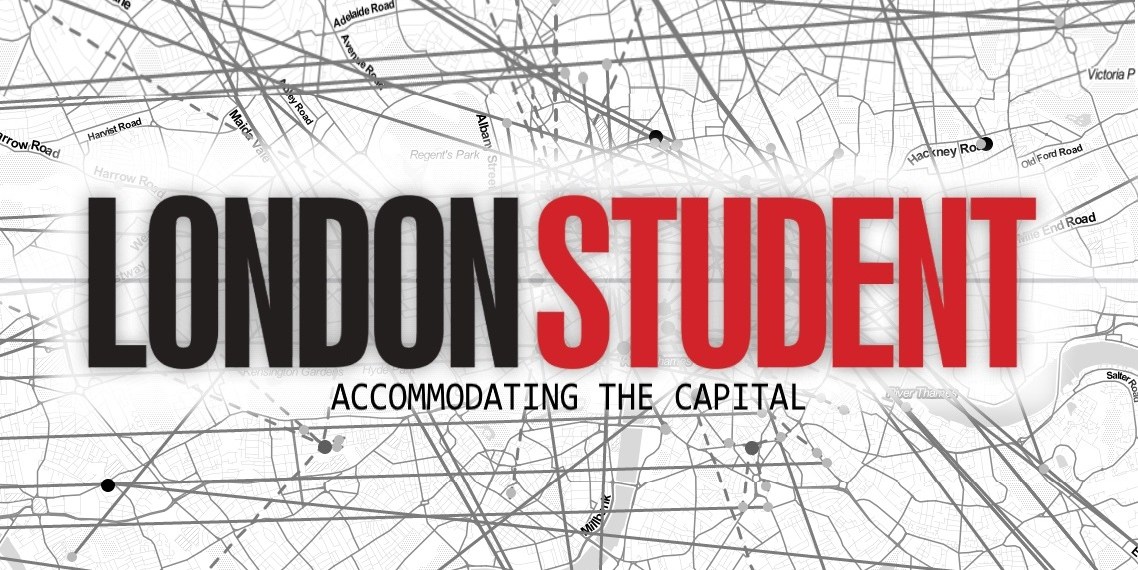If there are two words guaranteed to start a civil war on campus, they must be free speech. Once again, the task of starting that bin-fire of a debate falls to libertarian loudspeaker Spiked, who have published their annual index of campus censorship.
Reader, I truly didn’t want to look at it. I planned to ignore it, in the same way I ignore Katie Hopkins or the app Angry Birds. But late at night, angry about something else, I clicked. I’m sorry. I know I shouldn’t have.
Reading through, one thing became pretty clear. Spiked and I have very different ideas of what constitutes free speech. For example, did you know that preventing payday lenders from targeting students on campus is an infringement of the freedom to speak one’s mind? In the spirit of discussion and the academic pursuit of understanding, here are a few more things you didn’t realise free speech meant.
1. Free speech means more fascists. Yay!
UCLU draw fire for the following: “To permit no use of UCLU spaces, platforms or resources by fascists or fascist organisations, including but not limited to the British National Party and English Defence League.’”
Yep, apparently Spiked pine for an era when the BNP and EDL could freely march around the UCL quad, waving their Union Jacks and shouting at people who look a bit foreign. Ah, the good old days, before people started questioning whether blindly accepting the right of a fascist to talk about why we should all be fascists might result in, well, more fascism. Don’t you miss them?
2. Free speech means bullying (and bad grammar)
At UCL: “The university, which has moved to a Red ranking, places restrictions on ‘provocative’ and ‘offensive’ speech, and insists students use transgender pronouns.”
Funnily enough, transgender pronouns are regular pronouns. Honestly, I know four languages and I’m still not sure what they mean by the phrase ‘transgender pronouns’. He/him, she/her, they/them… These are the same pronouns we already use. Even the less-common xe/xir has been known for more than 40 years. Do they not know this? Pronouns aren’t some new-fangled invention created by the LGBTQ+ community to confuse right-wing commentators. They’re a part of language (and have been for thousands of years), and intentionally using the wrong ones to humiliate someone is bullying. Simple.
3. Free speech means transphobia
‘Transphobic materials, in the form of notes, graffiti, music or speeches, will not be tolerated.’
After reading through a few more universities, a pattern began to emerge: any motion, statement, policy or action directed at curbing transphobia was ranked as a red offence. UCL, King’s, London Southbank, Goldsmiths… The list is endless. I checked; for comparison, King’s (from whom the above statement is taken) have a virtually identical policy regarding homophobia, which Spiked ignore. Another similar policy on religion is criticised by Spiked, but receives only an amber rating.
After years of slow progress, efforts for trans equality are finally gaining ground. To see such campaigns singled out as specific violations of free speech, in a way that other liberation and equality campaigns are not, suggests that for many the idea of respecting trans people is still challenging. Ironically, Spiked’s attitudes here prove exactly why we need these policies, and why we must keep fighting for inclusion in behaviour and language.
4. Free speech means protecting the Daily Mail’s profit margins
Much has been written about City University’s decision to ban the Sun, Daily Mail and Express from campus. They’re certainly not the only university to have done so. The most significant part of these policies is normally that the papers will no longer be sold (even SU officials admit they can’t stop people bringing them to campus) so the Sun will have to do without the extra £3 they might have made and avid tabloid fans will have to go to a local cornershop for their Page 3 fix. Beyond that, it’s basically a statement about the SU’s political beliefs – but apparently Spiked’s warped view of free speech means SUs aren’t allowed to have those any more.
5. Free speech means compulsory degrading experiences
City University are criticised for a policy which includes: “Any initiation ceremony, or other compulsory or effectively compulsory degrading ritual, is not permitted.’”
We’ve all been there. Standing outside ULU at 2am, with one of your friends vomming in the street, another buying a norovirus-inducing hot dog from that guy who stands outside Waterstones, while you question why you did this to yourself again and also whether you can safely buy a hotdog or whether too much of your friend’s puke got on your hands. It’s a classic, classic moment in the life of most students.
But what makes it great is that you chose it. You made a decision, and you stuck with it, and now you have a mixture of sick and alcohol and mustard on your shirt, and you’re going to have to get the night bus back to Crouch End, and you’re so undeniably, unbelievably proud of your decision. Your revolting, degrading, liver-destroying life is fun, because you chose it. If some weirdo in a rugby shirt was here making you do all this with the threat of expulsion from the A Team (I don’t understand sport, ok?) then it would be possibly more lethal and not nearly as fun. I think we can all agree that banning ‘compulsory degrading rituals’ is probably not a bad thing.
6. Free speech means the loss of your dignity
After a while I got bored of looking at London universities, and started randomly clicking. Dundee get bumped down to an amber rating for a little policy called Dignity at Work and Study. If anything constitutes a loss of dignity, I reckon it’s the fact that I have to share the title journalist with people who write for Spiked.
6. Free speech means being late for a lecture because the anti-abortion people were harassing you again, seriously, this must be the third time this week
Goldsmiths: ‘To prevent groups which present a threat to women’s safety and intend to restrict women’s reproductive rights from harassing women students on campus.’
My 6th form college was opposite a private abortion clinic. Every day, I would get off the bus and walk the 10 minutes from the bus stop to college. And every week, I would walk past the same group of people holding the same banners with pictures of foetuses. And every week, they would stop students to tell us why we were going to hell for not holding placards like theirs. It got so bad that, when someone walked into class late and said “Sorry, it was the pro-lifers again”, the teacher would just nod sympathetically. One girl once walked into a lesson in tears because of the things they had been saying to her. Our principle had to speak to the council, in order to get them to leave students alone.
And while missing the register from time to time is a small issue, accosting women who are in the process of making an informed decision about their healthcare, or accosting female students and telling us about our own bodies, is dangerous and unfair. Protecting students from harassment - harassment - is not a bad thing.
While public discourse descends into name-calling and abuse, universities are finding ways to debate in a better, more respectful fashion
In fact, nothing contained in here was big or bad. The Daily Mail remains on sale most places, if you want to undergo degrading experiences you can consent to them, pro-lifers can still carry placards and post about it on their blogs, and should the EDL decide to march through London, they could - provided they didn’t pause for a cuppa in a UCLU cafe. Our campuses are safer, more tolerant places where we remain free to study and learn. While public discourse descends into name-calling and abuse, universities are finding ways to debate in a better, more respectful fashion.
But there are big and bad attacks on free speech. The Prevent duty turns universities into spies, policing their students views for the slightest hint of radical views. It wasn’t left-wing students who referred an MA student to counter-terrorism for reading a university-owned book on terrorism in the library (he was studying global security), nor SU officers who initiated a crack-down on pro-Palestine activism. Student activists never decided that being against equal marriage makes you a terrorist, or suggested that having unmet aspirations makes you a radical extremist. These things were done by universities, following direction from Theresa May.
Prevent goes further than any SU policy ever can or will - an SU does not have the power to no-platform an academic speaker; they can only monitor student society events. Prevent, on the other hand, touches every single employee, putting ever tighter restrictions on lecturers. Most pointedly, Prevent disproportionately affects the free speech of BAME students. It’s a dystopian world where minority groups are subject to crackdowns on speech, while simultaneous policy aimed at stopping discrimination is decried as an attack on everyone else’s freedom.
Strangely, those who cry out on behalf of free speech rarely - if ever - touch on Prevent. They happily ignore the attacks on free speech perpetrated by university administrators and a Conservative government, only concerned about academic liberty when the perceived attacker is a student or, better still, left-wing. To keep up the ire over free speech they must reach for ever stranger regulations to condemn, be that degrading initiation rituals, inclusivity for trans students and staff or anti-harassment policies - and avoid at all costs condemning Prevent. Such is their determination to make free speech a left-right conflict, they ignore the biggest threat to liberty our campuses have seen in recent years.
Becoming kinder, more thoughtful and respectful people is not dangerous. What is dangerous is the hysteria around free speech, which conflates bigotry with discussion and bullying with conversation while ignoring the attacks students face.






Add comment